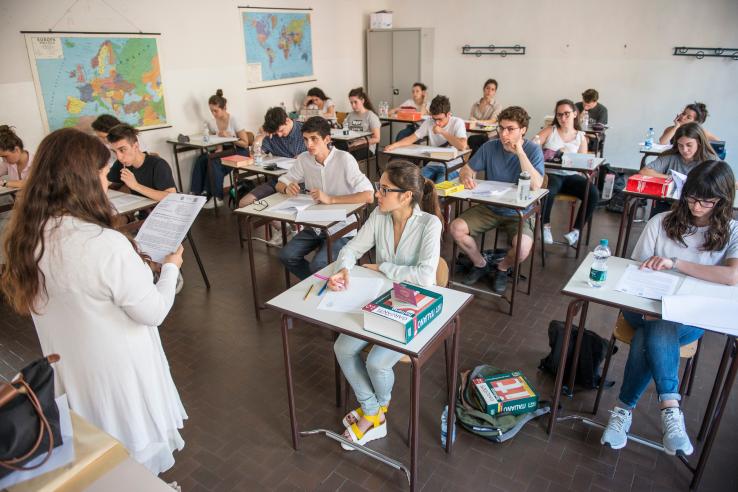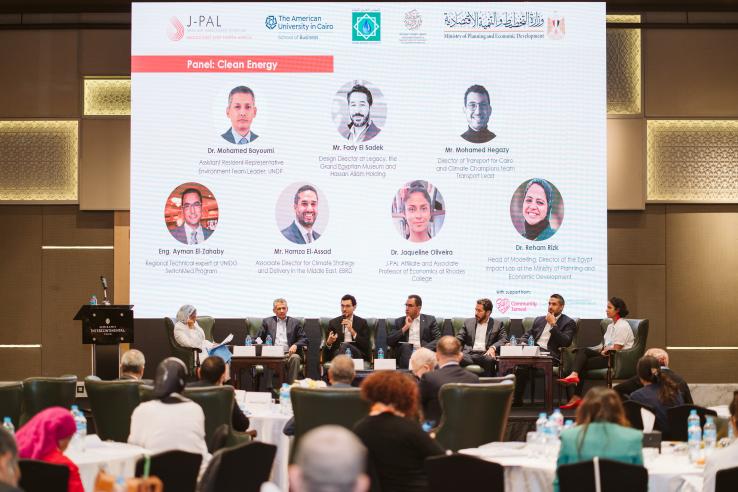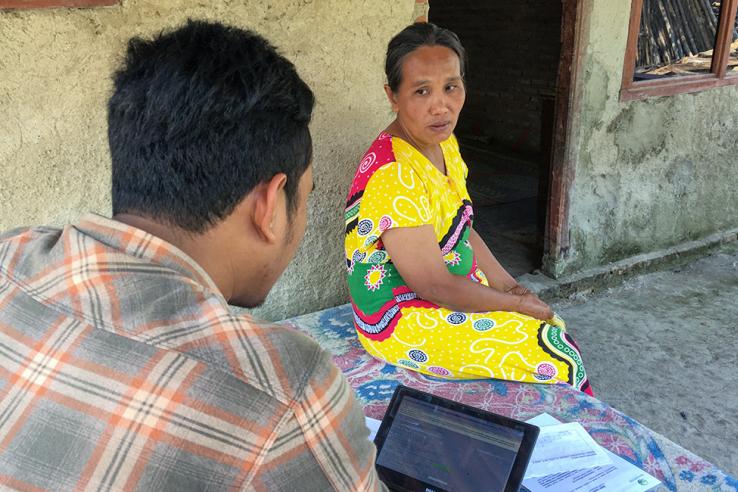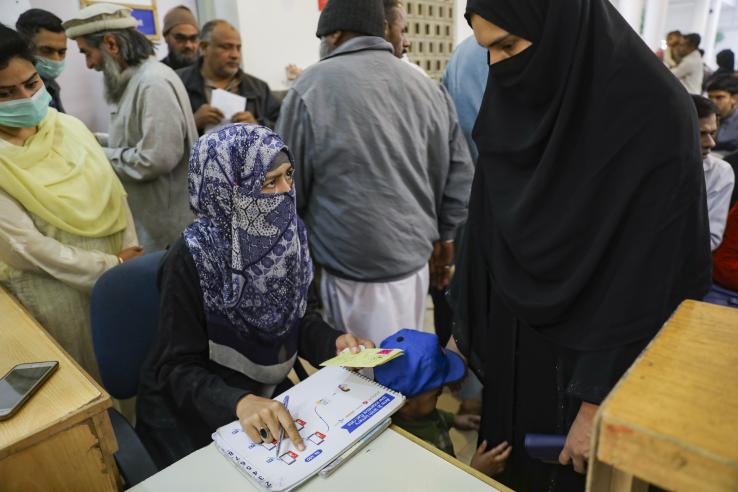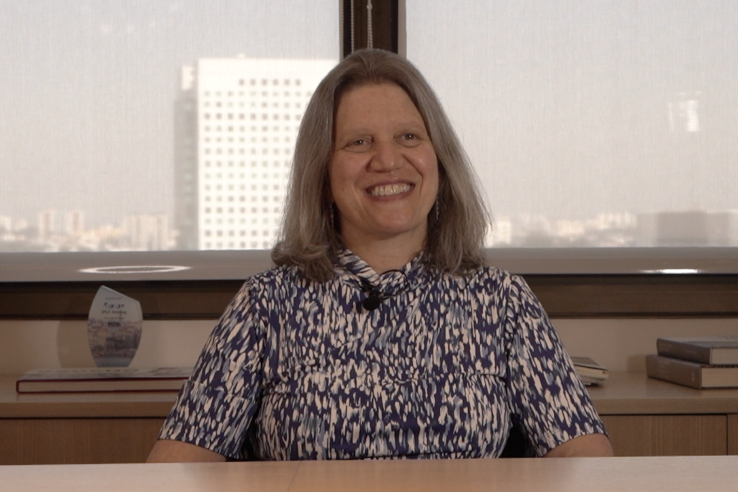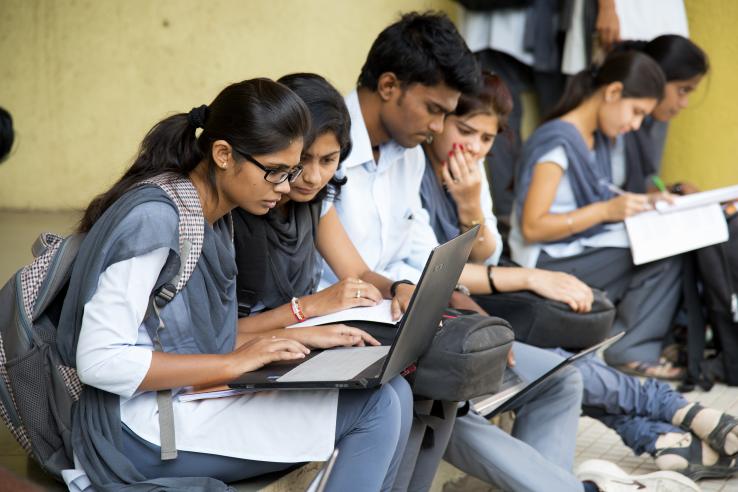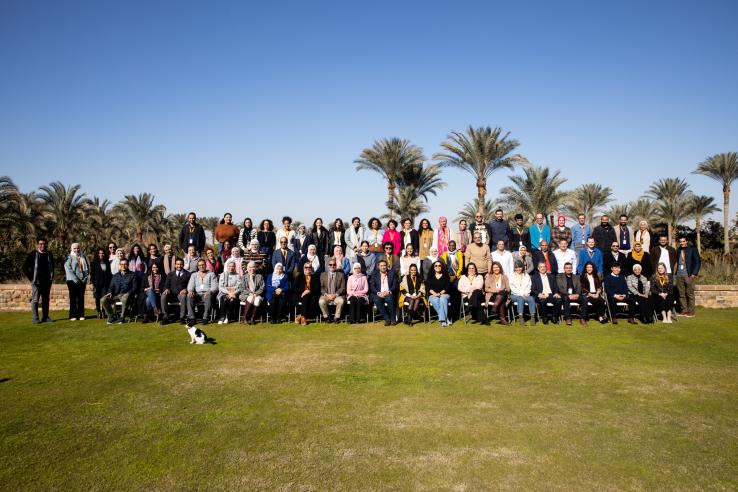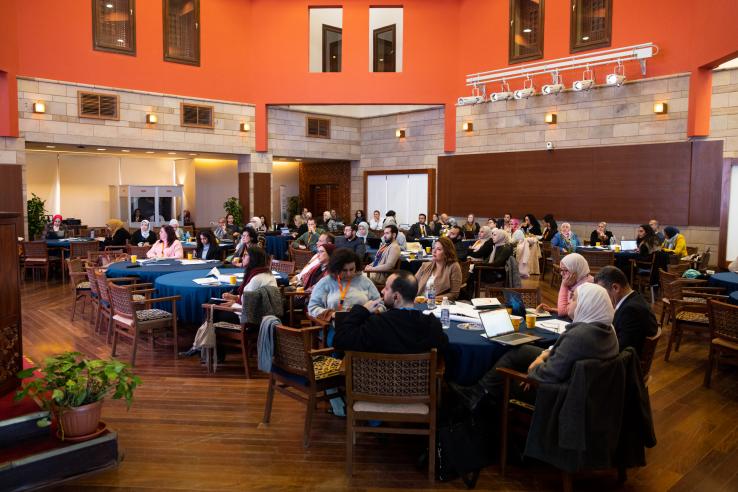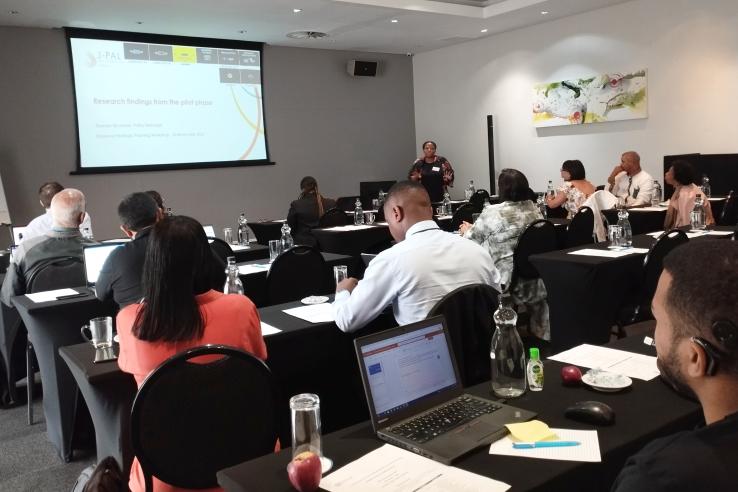Displaying 3301 - 3315 of 8489
Microsite
Initiative Resource
Initiative projects and documents
Blog
J-PAL and the Center for Effective Global Action’s (CEGA) Digital Agricultural Innovations and Services Initiative (DAISI) was launched in 2021 to rigorously evaluate programs that increase the availability, quality, and reach of bundled, digital agricultural solutions and services for small-scale...
Blog
This blog post, part of J-PAL Europe's series on research and activities across Europe, looks at a series of randomised evaluations in Italy that explore this question with a particular focus on students from immigrant families. As school systems across Europe welcome increasingly diverse...
Blog
In the context of leveraging randomized evaluations for climate action, developing partnerships between various stakeholders is a necessary first step. From that premise, J-PAL MENA at the American University in Cairo co-hosted with the Ministry of Planning and Economic Development in Egypt, the...
Event
J-PAL North America and Results for America hosted a conversation with an environmental economist and transportation and climate leaders from King County, WA on the role and promise of rigorous evaluation in informing effective, equitable climate mitigation and transportation strategies.
Update
J-PAL Updates
Another installment of J-PAL's 20 for 20 blog series features advice from Mohammad Zeqi Yasin on best practices for ethical research in complex situations and J-PAL North America celebrates in 10th anniversary.
Evidence to Policy Case Study
Case study
The Health Department of the government of Sindh, Pakistan used rigorous evidence from a randomized evaluation to support the scale-up of an incentive program to increase routine childhood immunization coverage and timeliness.
Blog
In part four of J-PAL North America’s researching racial equity blog series, we sit down with Anthony Barrows, Managing partner and founder of the Center for Behavioral Design and Social Justice, to understand how to center lived experiences throughout the research process and in impact evaluations.
Blog
This is the fifth post of J-PAL’s 20 for 20: Partner Voices blog series, where we showcase stories of results and impact with our partners to celebrate our twentieth anniversary. Read on to learn more about Vivianne Naigeborin, Executive Director of the Arymax Foundation, and her experience...
Evaluation
In partnership with an education assessment firm, researchers conducted a randomized evaluation to isolate the impact of computer-based individualized instruction in India. After nine months, lower-performing students in grades six to eight learned 22 percent of a standard deviation more in math if offered materials that matched their learning levels. For the average student, individualized instruction did not affect math learning.
Update
J-PAL Updates
J-PAL MENA's February newsletter features remarks from Executive Director, Alison Fahey, and updates on evidence-informed policy making and what staff have been working on.
Event
The second annual EIL Evaluating Social Programs will take place from 15–17 January 2024 at AUC. This three-day, in-person training course equips participants with resources and knowledge to engage with impact evaluations of social programs. The course provides an in-depth look at why and when...
Blog
In 2019, representatives from the Western Cape Government’s Department of the Premier's Office attended J-PAL Africa’s Evaluating Social Programs (ESP) course in Cape Town to learn more about how evidence from randomized evaluations can inform program design and implementation. During ESP...
Person


